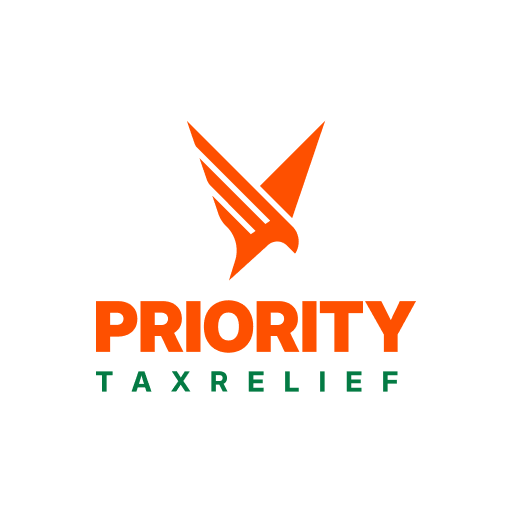What Is a 1099 Form? How It Works, Who Gets One, Types
A 1099 is a record that an entity or person (not your employer) gave or paid you money. One copy of the form goes to you and another copy goes to the IRS.

Many, or all, of the products featured on this page are from our advertising partners who compensate us when you take certain actions on our website or click to take an action on their website. However, this does not influence our evaluations. Our opinions are our own. Here is a list of our partners and here's how we make money.
What is a 1099 form?
1099 forms are documents that you might receive from a business or another entity that summarize payments made to you throughout the year as a nonemployee. Businesses are responsible for generating 1099s and sending them to their customers or clients. They are also required to send copies to both you and the IRS.
You'll typically receive a 1099 by the end of January or early February the year after the income was earned. You'll use it to figure out how much income you received during the year and then report that income in different places on your tax return.
» If you need help estimating how income on a 1099 form could affect your tax bill, check out our free tax calculator.
Who receives a 1099?
People can get a 1099 form for different reasons. For example, freelancers, independent contractors, and other gig workers often get a 1099-NEC from their clients outlining their income earned. People who earned interest from a high-yield savings account may receive a 1099-INT from a bank.
If you've earned multiple types of taxable nonemployee income with the same institution, you may get what's known as a consolidated 1099. Someone who does a lot of business with a single brokerage account provider may, for example, get a 1099-B (which reports taxable capital gains) and a 1099-DIV (a report of income earned through dividends) rolled into one 1099 form.
A 1099 form is only sent for nonemployee payments. This means that if you're an employee, your income isn't reported on a 1099 but on a W-2 form instead.

on Priority Tax Relief's website

on Alleviate Tax's website
Do I need a 1099 to file my taxes?
Yes, you'll need your 1099 to accurately report your income on your tax return. A copy of this form is also sent to the IRS, so you can be sure the agency knows about this income.
However, simply receiving a 1099 tax form doesn’t necessarily mean you owe taxes on that money. You might have deductions that offset the income, or some or all of it might be sheltered based on the characteristics of the asset that generated it.
When are 1099s sent out?
Most 1099s are due to the recipient by January 31 the year after the income was earned. If the 1099 due date falls on a weekend, the deadline rolls over to the next business day. Certain types of 1099s, such as a 1099-S, aren't due until mid-February.
If you're expecting a 1099 this year and don't receive it by mid-February, the IRS suggests contacting the payer as soon as possible. You can also call the IRS' main customer service number for help if you can't get in touch with the entity that owes you a 1099.
Types of 1099s
There are several kinds of 1099 tax forms. The IRS also refers to them as "information returns." Here’s a basic rundown of the Form 1099s most likely to cross your path.
1099-B: Proceeds from Broker and Barter Exchange Transactions
This form covers income from the sale of several types of securities and investments, such as stocks, as well as some types of bartering that take place via bartering exchanges, typically websites. In that case, the exchange might "1099" you for the income you received. A 1099-B isn't usually required if you barter with someone directly, though you may have to report the income. (Learn more about how 1099-Bs work.)
1099-DA: Digital Asset Proceeds From Broker Transactions
New this tax season, if you exchanged, sold or disposed of crypto or another type of digital currency, expect a 1099-DA from your broker detailing your gross proceeds. You'll use this information to fill out Form 8949 and/or Schedule D to determine your gains and losses.
1099-DIV: Dividends and Distributions
One of the most common forms of this is the 1099-DIV, which reports dividends you received. This doesn’t include dividends on your share account at a credit union. The IRS considers those interest, so they appear on a 1099-INT. (Learn more about the 1099-DIV form.)
1099-G: Certain Government Payments
If you received money from the state, local or federal government — including a tax refund, a credit or an offset — you might get one of these. If you were on unemployment during the year, you might also have a 1099-G headed your way.
1099-INT: Interest Income
If you earned $10 or more in interest from a bank, brokerage or other financial institution, you’ll receive a 1099-INT. (Learn more about the 1099-INT form.)
1099-K: Payment Card and Third Party Network Transactions
If you received more than 200 transactions and over $20,000 of business income or payments for goods and services via credit card or a third-party payment system (such as Venmo or Cash App) in 2025, you should receive a summary of those payments on a 1099-K. (Learn more about the 1099-K form.)
1099-LTC: Long Term Care and Accelerated Death Benefits
If your long-term care insurance paid out benefits during the year, the insurer will probably file a Form 1099-LTC. If you received payments from the accelerated death benefits of a life insurance policy, those are reported on this form, too.
1099-MISC: Miscellaneous Information
Much like the name implies, this form is a catch-all for income that doesn’t fit into other 1099 categories — though it does have some specific purposes. Income from prizes and awards is an example of what goes on a 1099-MISC. (Learn more about the 1099-MISC.)
1099-NEC: Nonemployee Compensation
In 2020, the IRS reintroduced the 1099-NEC, which companies now use to report money paid to people who did work for them but weren't employees. In other words, if you freelanced, were self-employed or had a side gig, your clients should send you a Form 1099-NEC instead of a Form 1099-MISC in the mail. (Learn more about the 1099-NEC.)
1099-OID: Original Issue Discount
You might receive Form 1099-OID if you bought bonds, notes or other financial instruments at a discount to the face value or redemption value at maturity. Typically, the instrument must have a maturity of more than one year.
1099-Q: Payments from Qualified Education Programs
The 1099-Q reports money that you, your child, or your child's school receives from a 529 plan. Keep in mind, however, that the earnings in a 529 plan are generally not subject to tax when they’re used for qualified education expenses, so for many people, the 1099-Q is just record-keeping.
1099-R: Distributions From Pensions, Annuities, Retirement or Profit-Sharing Plans, IRAs, and Insurance Contracts
If you got distributions from a pension, retirement plan, profit-sharing program, an IRA or an annuity, you might receive a 1099-R. (Remember, many retirement plans are tax-advantaged, so this form might be simple record-keeping on behalf of the IRS.) If you took a loan from your retirement plan, you might have to treat it as a distribution, which means it might be on this form, too, as well as permanent and total disability payments under life insurance contracts.
1099-S: Proceeds from Real Estate Transactions
Anyone responsible for closing a sale or an exchange of real estate furnishes this statement to you, reporting the proceeds. Again, the proceeds from the sale of your house or other real estate aren’t necessarily taxable, so do your homework.
1099-SA: Distributions From an HSA, Archer MSA, or Medicare Advantage MSA
This is the form you’ll receive if you took any distributions from your health savings account, Archer medical savings account or Medicare Advantage. HSA and Archer distributions generally aren't taxable if you use them to pay for qualified health expenses. So again, for many people, a 1099-SA is simply proof that the money left the account and went to you.

on Priority Tax Relief's website

on Alleviate Tax's website
Who is a 1099 employee?
The phrase "1099 employee" generally describes a person who, in the eyes of the IRS, is an independent contractor, also called self-employed or a freelancer. People who are considered 1099 workers are generally asked to fill out a W-9 at the start of a new work relationship or contract.
If you get a 1099-NEC from your employer, that's a sign that the company sees you as an independent contractor rather than an employee.
ON THIS PAGE
ON THIS PAGE






